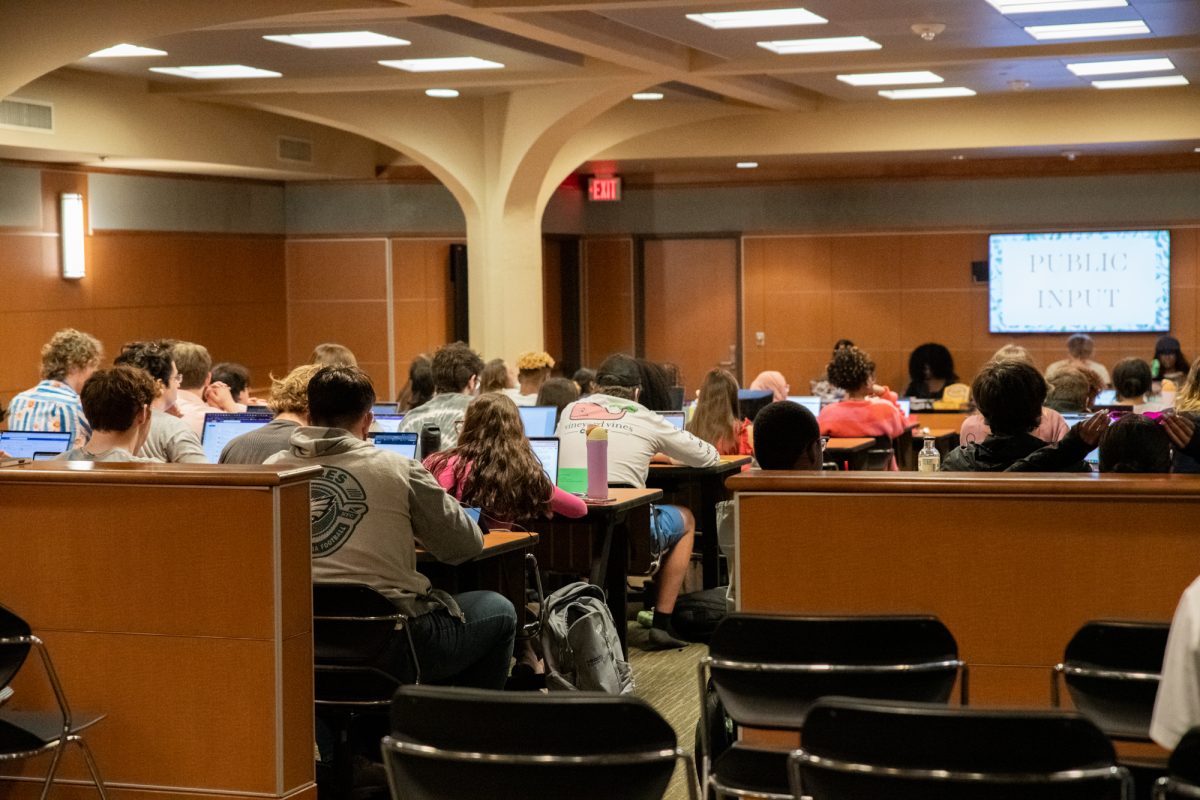Though money from fall 2014 was approved in Student Government Senate, not all expenditures made it to the bank.
Even if the entire Student Senate passes a legislative spending measure, Speaker of the Senate Adam Grashoff said a board of Student Government leaders can halt spending.
For example, after legislation to authorize spending of $10,000 on SG rebranding efforts passed through Student Senate, SG leaders later decided not to spend the allocated funds — making them unusable until the next fiscal year.
“When we got new leadership recently, we kind of decided that there’s not really an issue of having to spend that much money on rebranding,” Grashoff said.
There are five fees included in students’ fee bill. For full-time students, these include a $245 Academic Excellence Fee, a $75 Technology Fee, a $48 Building Use Fee, an $80 Operational Fee and Required Fees that ranged from $584 in the fall to $591 in the spring.
With the exception of Required Fees, the titles of the others explain what they will be used for.
Required Fees are distributed to different areas around campus — including Student Government. Every semester, $2.20 of each student’s Required Fee goes to SG Programming Support and Initiatives, said SG Senate Director of Communication Zachary Holley.
“That sums up to about $117,774.10 for this fiscal year’s total SG revenue,” Holley said.
Of this money, the legislative branch is appropriated a total of $31,274.10. A surplus account and initiatives also help fund projects.
The Office of Budget and Planning’s website says SG uses this money to allocate funds to student groups who are in need of financial assistance and plan programs that will enrich the University community. The fee is also used to cover day-to-day expenses of SG.
SG senators then put this money to use though legislation.
Records of SG finance bills can be found on the SG website.
Student groups or organizations that offer a service to students looking to get funding from SG can submit a funding application to their respective senator. The group must also attach an itemized budget of total costs and a breakdown of how the allotted funds will be spent.
A senator will write and present the finance bill to the Student Senate, where senators from each college will vote for or against the bill.
An organization, event, student(s) or expenditure is only allowed one Senate funding allocation per semester and cannot exceed two per academic year.
Since the start of the fall 2014 semester, SG senate has allocated $54,830 for these activities, but only spent $40,153.70.
Between the Fall 2014 and spring 2015 semesters, SG passed six finance bills sending students to represent the University at conferences around the U.S., Spain and Jamaica.
According to Grashoff, between a rebranding of SG effort, purchasing ten replacement computers for SG offices and buying 15 clickers for Student Senate operations, SG allocated $18,300.10 to be spent on internal operations. After the rebranding was nixed by SG leaders, the total cost of SG internal spending was $8,300.10.
Even seating during class breaks touches SG dollars.
SG spent $24, 180.60 to fund projects to increase seating around campus, specifically in the Art & Design Building and in Memorial Oak Grove.
Student Government Senate allocates $54,830, spends $40,153.70
March 3, 2015
Speaker of the Senate Alex Grashoff bangs the gavel Wednesday, Jan. 15, 2014 to pass a resolution at the first Student Government meeting of the semester.
More to Discover










